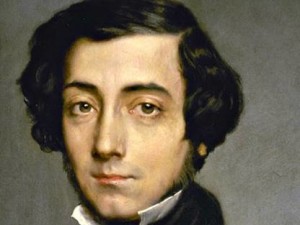Ever since the ancient Greeks, and long after Attica and Pericles, we arrived, by fits and starts, at an understanding that democracy, and the right of the people to vote, is how we overthrow kings, dictators, and corrupt political elites.
Many suffered and died when resisting those who opposed the popular vote.
We are engaged in a struggle over what the franchise means in this presidential election year.
Alexis de Tocqueville wrote that, “America is great because she is good. If America ceases to be good, America will cease to be great.”
What is especially “good” about America is that “we the people” can say directly or indirectly how we are governed by whom we may elect with our votes.
Thomas Jefferson believed that, “[s]hould things go wrong at any time, the people will set them to rights by the peaceable exercise of their elective rights.”
Republican voters are asking this year whether their “elective rights” have anything like the bang per vote they thought they enjoyed.
In the Republican primaries, we have seen how the votes of one man may be reduced to a fraction, or be treated unequal to another man’s vote, or may even wither until a nullity, void and of no effect whatever.
Harry Enten studied the variance in the recent Republican primaries and caucuses, focusing on how many voters it took to elect a delegate.
Mr. Enten found a range, how it took 52 votes to elect a Republican delegate in the Northern Mariana Islands, but 2,516 votes in Nevada; the insider caucuses, he concluded, invited outsized elite influence, requiring fewer votes to elect more delegates.
The orange canary in the Republican presidential primaries has been Billionaire Developer Donald Trump. Continue reading

